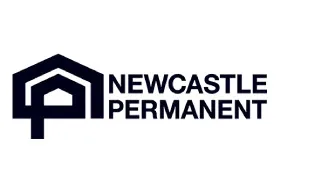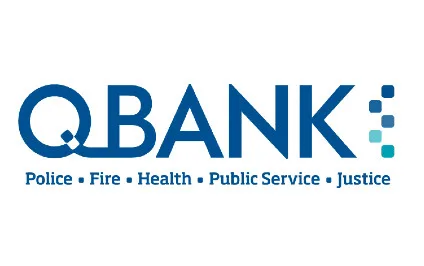How borrowers can get a better deal on their first home

Buying your first home this year? Here are our tips and tricks to help you choose the right loan without paying more than you need to.

 Sponsored by QBE – helping customers learn more about lenders' mortgage insurance (LMI). Learn more on Finder's LMI hub, brought to you by QBE Insurance. Providing LMI since 1965.
Sponsored by QBE – helping customers learn more about lenders' mortgage insurance (LMI). Learn more on Finder's LMI hub, brought to you by QBE Insurance. Providing LMI since 1965.
Buying a home for the first time can be a daunting task. There's a ton of different terminology and paperwork to get to grips with, so it's complicated for any newcomer.
But the good news is that there is support available. With the right help, you can get a better deal and set yourself up to be in a better financial position, too.

1. Look for a loan that aligns with your values
Recent years have seen a big shift towards green home loans from financial providers.
There are a number of different reasons for that.
Wider awareness of environmental concern, government regulation, corporate social responsibility initiatives and more affordable green technology have all played a role.
It has translated to real results, too.
The 2022–2025 Housing Outlook: Green Edition, commissioned by QBE LMI, notes that greenhouse gas emissions have been declining from the residential housing sector in Australia over the past decade.
This is in spite of the fact that the population has continued to grow – which in turn requires new housing to be constructed.
As a result, lenders are keen to support housing projects – both new and renovations – that support more environmentally-friendly housing options.
To encourage borrowers to invest in greener homes, many providers are also offering special deals on these loans.
For example, QBE LMI – has recently launched a 5% rate discount on lender's mortgage insurance through a number of lenders for homes bought with a green mortgage*.
Bottom line: By working with a sustainable lender, you can probably get yourself a better deal on your loan.

2. Consider: Is it a forever home or a foot on the property ladder?
When you're buying your first home, one of the most important considerations is how long you're planning to stay.
If you're planning to live there for a few years and then use the equity to buy somewhere bigger or better – is it really worth going all-in and committing yourself to the biggest loan you can be approved for?
If it's intended as a forever home, on the other hand, then you may think it's worth spending a little more to get the place you really want.
Whatever your long-term plans may be, there are still some things to be said for making eco-friendly enhancements around the house.
The Housing Outlook report notes that green solutions for the home can generate increases in the value of homes of 5–10%.
The report also notes that enhancements such as solar panels can save homeowners up to $909 each year in energy costs.
Now – life happens and plans change, of course. But if you've got a clear idea in place, you're much more likely to spend wisely and score a better deal. You'll also be setting yourself up for reduced ongoing costs with the right additions, too.
Bottom line: Green home options can save you money and potentially add value to your home.
3. Get financial assistance – there's plenty available
Buying a first home is expensive. But fortunately, there are some opportunities to get help.
The First Home Owner Grant has been available to first home buyers or builders since 2000, but the specifics and qualifiers vary from state to state.
Overall, it's now mainly new homes that qualify for a grant.
For example, there's the First Home Owner Grant (New Homes) Scheme and the First Home Buyers Assistance Scheme in NSW. The former is a cash grant for first home buyers, while the latter is a tax concession.
There are also schemes like the Regional First Home Buyer Guarantee and a range of other government assistance programs available under certain circumstances.
As well as grants, first-time buyers are often eligible for stamp duty waivers or discounts, which can save you up to tens of thousands of dollars.
Your broker or loan provider will usually be able to provide you with information about the specifics.
Bottom line: Depending on where you live, you may be eligible for grants of $10,000 to $20,000 to get into your first home.

4. LMI may help you get your first home sooner
Housing prices have dipped recently due to a variety of factors, which has encouraged many buyers to take their first plunge into the housing market.
But prices won't fall forever.
According to the Housing Outlook report, the bottom of the cycle is likely to hit in late 2023, with recovery occurring afterwards into 2024 as interest rate rises stabilise.
In the interim, rising interest rates mean that obtaining credit can be tough.
Because loan repayments are higher, in turn borrowers need to demonstrate that they're capable of making those higher repayments.
This has had a real impact on the rising cost of living, too, which makes it trickier to save for a house deposit.
This is where LMI can be a handy option.
LMI is a form of insurance the lender may take out when their borrowers have a deposit of less than 20%.
The lender may ask you to contribute payment to the LMI, as the product acts like a guarantee to the lender that if you stop making your repayments, the lender may be protected by their LMI.
This means its "risk" when lending to you as a first home buyer is lowered.
If you've got the ability to make repayments but don't have a big deposit saved, LMI means that you can kickstart the purchasing process sooner and get a foot on the property ladder.
Bottom line: Instead of having to save a full 20% deposit to buy your first home, with LMI you can buy with as little as 5%, plus the passed-on cost of the lender's LMI premium.

5. Be organised to avoid extra administrative costs
Aside from the price of the home itself, there tends to be quite a few other associated costs with purchasing a home. Loan application fees, stamp duty, building reports and much more can all add up very quickly.
Not all of them are necessarily avoidable, but by working with the right providers you can often minimise your overall expenses.
For example, using tools like a mortgage calculator can give you a rough idea of how much you'll be able to borrow ahead of time. That way, you'll be able to speak to a lender in realistic terms.
And given the complexity of the home loan landscape, it could be worth working with a dedicated professional, especially if your situation is a little complicated.
Mortgage brokers can work with you to help prepare your documentation ahead of time – before you apply.
Early prep work can end up saving you time, money and continual credit checks.
Didn't know you needed a particular document? It's much better to find out ahead of time, rather than midway through the application process.
Otherwise you could be looking at submitting multiple applications. This wastes time and can potentially sting your wallet with multiple application fees, too.
Bottom line: The more organised and prepared you are, the less chance of paying extra charges and double-up application fees.
Visit the QBE LMI hub to learn more about LMI today.
Compare home loans from QBE's partner lenders
| Lenders | |||
|---|---|---|---|
 |  | ||
 |  | ||
 |  | ||
 |  | ||
 |  | ||
 | |||
 |  | ||
 | |||
 |  | ||
 | |||
 |  | ||
 |  | ||
 |  | ||
 | |||
 |  | ||
 | |||
 |  | ||
 |  | ||
 |  | ||
 |
